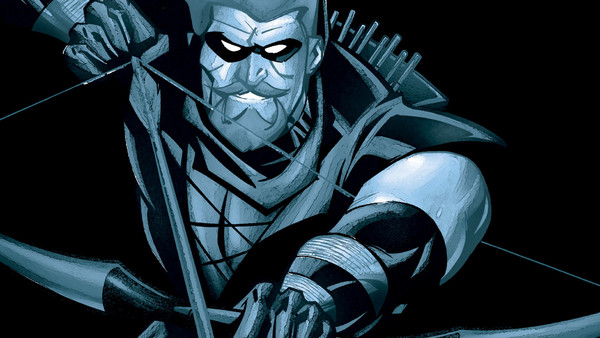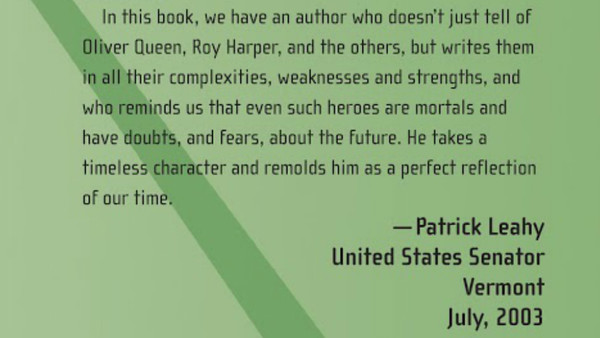The DC Comic That Saved Green Arrow
3. How Meltzer And Hester Addressed The Genre's Dullest Cliché

Kevin Smith's Green Arrow stories (collected in Quiver and Sounds of Violence respectively) are rightly lauded as some of the best the character's ever featured in. However, perhaps for that very reason, the following book hasn't been discussed nearly half as rigorously - that being Meltzer and Hester's Archer's Quest.
Today, Brad Meltzer is perhaps best known by comics fans for his work on Identity Crisis and the Justice League books that immediately followed its release, but back at the start of the millennium he was actually a novelist first and foremost (a line of work he's returned to in recent years). Him writing Green Arrow illustrated yet another occasion where the Big Two were branching out their horizons and recruiting from different mediums, with Smith a screenwriter first and foremost, and Meltzer (then) without a comic to his name.
If Quiver was about Oliver Queen reconciling with his development on the page, then the Archer's Quest was more about how developments off it have changed him too. There's still that same holistic approach to the character's legacy (which we'll get to later), but there's a very matter-of-fact way Meltzer addresses the character's return. In this case, the trope of resurrecting dead heroes isn't so much lampooned as much as it is addressed very literally; there's almost a level of black humour to the way the writer - and by extension Oliver too - broaches the concept of death, when the most definitive version of the character existed during a time when superheroes were immortal.
In this, according to United States Senator Patrick Leahy, Meltzer "goes way beyond our childhood days", and brings the character up to speed with the modern age of comics, but also the 21st century too.

Which brings us (nicely, I hope) to the story. Archer's Quest picks up a few weeks after the ending of Sounds of Violence, with Queen stood over his own grave next to Clark Kent. Why? He wants to know who attended his own funeral, and when he recognises a face that shouldn't be there - potentially jeopardising the safety of all those who attended - he sets out to solve what happened with Roy Harper, his former ward, at his side.
From then on in, Archer's Quest devotes the time to unpack how one would feel about returning from the dead, and what kind of reaction and emotions that would provoke. All of Arrow's friends had mourned his death for years - they'd moved on. But now that he's back, they have to pick up the pieces and start anew, unearthing a trauma few too little superhero books have considered when other figures have returned to the mortal coil. That alone imbues the Archer's Quest with a unique importance, and tacitly reiterates Green Arrow's own salience as well.